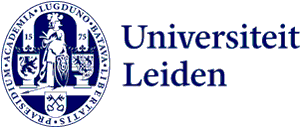
A more sustainable Leiden through citizen science
In the Leiden Municipality Challenge, 25 students investigated how Leiden could become more sustainable. In doing so, they enlisted the help of the city's citizens. 'When citizens themselves participate in the research process, they have a better understanding of how science works.'
Leiden has big ambitions when it comes to sustainability. For instance, the area around the central station should be the most sustainable kilometre in the Netherlands by 2025. But how do you actually do that, make a city sustainable?
Advice to the municipality
Under the guidance of coaches from The Young Academy Leiden and in collaboration with the Citizen Science Lab, students spent six months working on this question. Among other things, they looked at the waste disposal of cinemas, traffic safety around the train station, how young people think about sustainability, and the design of green spaces.
The latter refers to green places in the city, such as parks and lawns. Master's student in biomedical sciences Janneke and her group wrote an advice to the municipality on how best to design these. 'It may not be the first thing you think of, but people find it very important that there are enough wastebaskets in a green space.'
-

Students presenting their plans for a more sustainable Leiden. -

Students presenting their plans for a more sustainable Leiden. -

Students presenting their plans for a more sustainable Leiden. -

Students presenting their plans for a more sustainable Leiden. -

Students presenting their plans for a more sustainable Leiden.
Citizen science
At the heart of the project was citizen science, a way of conducting research where you involve the public in several stages of the research process. In this case, cinema staff, high school students, passers-by of the station area and other students contributed to collecting and analysing the data, says teacher of the subject Anne Land-Zandstra.
Citizen science can increase trust in scientists. Land-Zandstra: 'When citizens themselves participate in the research process, they have a better understanding of how science works.' With citizen science, research also connects better to societal problems. 'By setting up and conducting research together with citizens, you learn what knowledge already exists locally and you can build on that. Then you can really make an impact.'
Creating a better picture
The Leiden Municipality Challenge is part of a larger series of impact challenges: courses specifically aimed at making social impact. Honours College coordinator Bram Hoonhout: 'By working with external partners, we give students the opportunity to work on real-life issues and thus make a social contribution.'

Another unique aspect of these challenges is the interdisciplinarity. A mix of students specialised in exact and social sciences leads to great insights, says Janneke. 'I myself am very analytical and used to running all kinds of statistical tests on quantitative data. But our group included an anthropology student who emphasised the value of qualitative research. By using different research methods, we ended up with a much better picture of the results.'
A final distinguishing point is that you don't necessarily have to be an honours student to sign up for an impact challenge – a great opportunity for students who do not follow an honours programme, but who still want and are able to do more next to their regular studies.
Text: Sarawitia Franken
Photos: Buro JP
